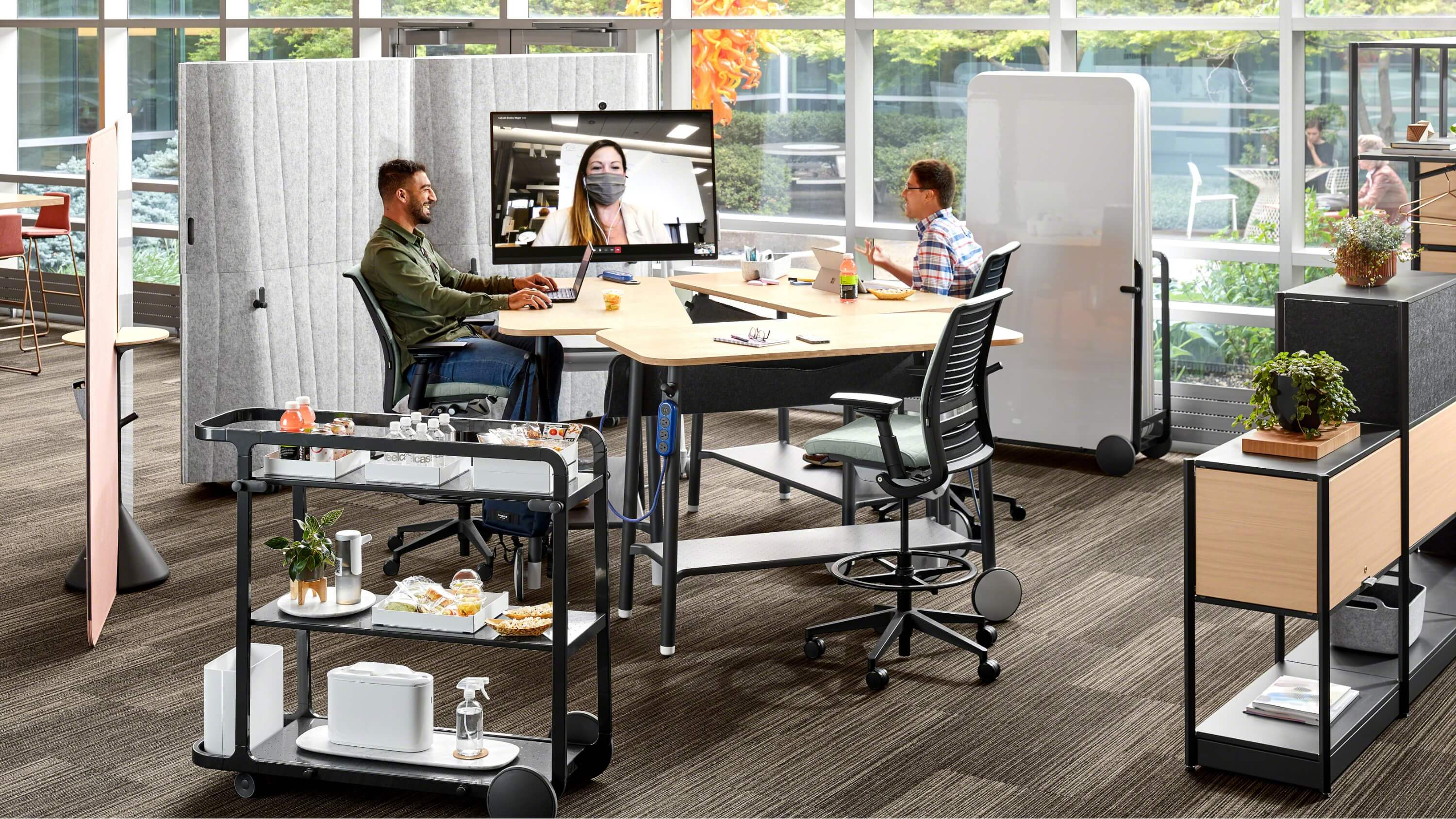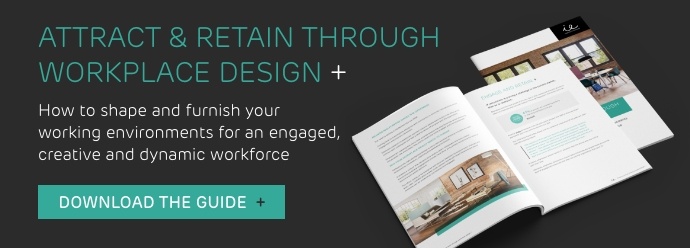The competition for talent has never been more fierce. 87% of UK employers say they are struggling to fill roles with the right people. And official figures show job vacancies have hit a record high of over one million.
Candidates are calling the shots. They’re choosing where they want to work, armed with wish lists' more extensive and exacting than ever before. But while all candidates have a better idea of what they need and want from work, it’s the younger workers who are expressing their opinions more freely. And they expect their views to be noticed.
So what do the next generation of workers want?
A new report from the London Property Alliance (LPA) reveals the needs and motivations of 2,000 workers aged under 35 and based across the capital.
Headline findings include:
- 78% of respondents said that workplace quality and experience is key when choosing an employer
- 76% said that a flexible working policy is important when choosing an employer
- 58% agreed that a future employer’s stance on sustainability could be a deal-breaker
- 43% said that work/life balance is one of the biggest motivations for working at a company
Let’s take a closer look.
1. Young people want an inspiring workplace experience
The research found that an inspiring workplace coupled with a supportive company culture leads to happy, engaged employees. And it seems young people are actively seeking these factors when choosing an employer. In fact, other reports suggest as many as a fifth of young people have turned down a job offer because of outdated office design.
There is a sophisticated understanding among the wider population about the choices available to modern workers in terms of office environments and working culture. We see visions of perfect and imperfect working environments everywhere thanks to social media, employer review sites and sales and marketing collateral. It seems young people in particular are using them to measure their own experiences of the workplace and set their expectations about what they want from future employers.
Within the workplace setting, workers are seeking eco-systems of interconnected spaces within which they can control:
- Where and how they work
- The physical arrangement of their working environment
- Acoustics, posture and physical presence in the workspace
- Transitions from individual to team working scenarios
- Levels of connectedness with colleagues and technology
“A variety of working environments with opportunities for planned and chance interactions are key ingredients to an interesting working life.”
Think about your own workplace. What impression does it create for those looking from the outside in? And what experience of your culture and work environments do candidates have when they arrive at your office for their first interview?
.jpg?width=800&name=My%20project-1%20(33).jpg)
2. They want more flexibility
90% of those surveyed by LPA said they would like to retain a hybrid working arrangement, with a preference for 2 to 3 days of remote work every week. This echoes many other studies, including Deloitte’s Gen Z and millennial survey, that have found workers have a preference for hybrid work over full time in the office or full time remote working.
This level of flexibility is a big deal - even going so far in influencing where young workers live. 59% said that the flexibility a company is willing to offer also determines where they choose to live. Another study revealed that 56% of young people would choose to live outside of a major city if they had the opportunity to work remotely. After all, this is a cohort who are worried about managing their finances, with the rising cost of living their greatest concern.
But it’s not just flexible working policies they need, but also flexible workspaces within the office.
Workers are seeking dynamic spaces that are designed to accommodate diverse groups of people. From height-adjustable desks, to temperature control, to the choice of communal or individual spaces to work, the workplace must be created in a way that allows everyone to thrive.
Think individual focus areas alongside more active communal spaces to allow people to quickly shift between work modes, and moveable screens so people can adapt boundaries and create added privacy as needed.

3. They’re deeply concerned about environmental issues
Research by the likes of Deloitte and McKinsey show workers are concerned about environmental issues and want to work for companies that speak to these values. But it’s the younger generation that are leading the pack in terms of their commitment to the cause:
- 64% of millennials said they definitely wouldn’t take a job at a company that wasn’t socially responsible
- 75% would take a pay cut to work for a responsible company (compared with a 55% average across all ages)
The results of the LPA survey repeat this same sentiment - 58% agreed that a future employer’s stance on sustainability could be a deal-breaker.
Organisations wanting to attract and retain the best talent will need to demonstrate their positive impact on ESG issues. ESG values will need to be integrated into workplace design, such as sustainable materials and furniture. Certifications like BREEAM and SKA will help demonstrate certain environmental and societal standards and increase credibility.
.jpg?width=800&name=My%20project-1%20(36).jpg)
4. They are seeking diverse and inclusive organisations
Sustainability isn’t the only issue young people are concerned about. A diverse and inclusive culture is equally important. Gallup research found one of the top priorities young people are looking for is an organisation that is diverse and inclusive of all people. And Deloitte found that Gen Zs and millennials satisfied with their employers efforts to create a diverse and inclusive environment are more likely to want to stay with their employer for more than five years.
It seems most candidates will be evaluating your commitment to diversity and inclusiveness when researching your company and throughout the interview process. They’ll be looking for indications of diversity across the business and sizing up your workplace to decide if it’s a place they can see themselves being comfortable and happy.
Inclusive design is becoming more and more important. Flexible work settings, where all workers can find a way and a place to work that suits them, is a way of respecting individual differences and contributions.
“Be it a drive towards net zero or creating diverse and inclusive organisations, young people are purpose driven and expect their employers to act with purpose on key societal issues.”
5. They are striving for balance
When respondents in the LPA survey were asked what their biggest motivations for working at a company are, work/life balance was high on the list, just behind salary and enjoyment of the job.
Younger generations, Gen Zs in particular, are experiencing high levels of stress and anxiety. Deloitte’s survey found 46% of Gen Zs and 38% of millennials are stressed or anxious all or most of the time. When looking at the key factors driving stress levels, concerns around financial security rank high. But there are other factors playing a role too, including heavy workloads and poor work/life balance.
But what does a good work/life balance look like? Is it about having flexible working policies, mental health support, childcare support, or sabbaticals? The reality is that it looks different to different people. The challenge for employees is offering support that satisfies everyone's needs.
Gallup’s research revealed the number one thing Gen Zs and millennials want is an employer who cares about their wellbeing. Offering wellbeing initiatives conveys this message loud and clear. In the workplace, this could mean meditation rooms, on-site gyms or fitness centres, mental health support and healthy food options.
.jpg?width=800&name=My%20project-1%20(34).jpg)
Summary
As the researchers surmise:
“The NextGen cohort is maturing, heading towards their most financially powerful lifestage. Their preferences should be the concern of any competitive business, as they will set the standard for our working future.”
Flexibility, purpose, culture and balance are all top of the priority list for Gen Zs and millennials. As Gen Z erupt into the workplace at a time of major change, conversations around these topics are louder than ever. Gen Z are entering the workforce with clear expectations, and they’re prepared to walk away from employers if their needs aren’t met. Meanwhile, millennials are heading towards more senior positions, and their preferences will set the standard for the future of work.
With it being a candidate driven market, organisations wanting to attract and retain the brightest talent within this cohort will need to take action to meet their needs. Companies that create inspiring workspaces where workers have choice over how and where they work, that prioritise sustainable and inclusive design principles, and create spaces that maximise employee wellbeing, will have a competitive advantage.









